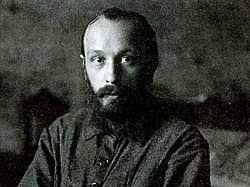Bakhtin, Mikhail

Bio: (1895-1975) Russian philosopher, literally critic, and semiologist. Mikhail Bakhtin studied classical philology at the University of St. Petersburg. In the first period of his work, he explored topics of ethics and aesthetics. In his work Questions of Literature and Aesthetics (Вопросы литературы и эстетики, 1975), he expressed the view that the novel, as a literary form, is, above all, a dialogical form of art. He believed that the novel, since it is constantly in a state of change and renewal, absorbs less flexible forms of expression. He viewed traditional fairs in the context of escaping from the everyday closed world and social and church laws, into a world of equality and freedom. Fairs are in an ambivalent relationship with official culture and society. Bakhtin, also, studied language and communication, and above all the systemic frameworks that determine the development of any form of communication. Although he himself rejected the connection with structuralism and semiology, other authors mostly connect him with these two approaches, as well as with culturology.
Main works
Проблемы поэтики Достоевского (1963);
Творчество Франсуа Рабле и народная культура средневековья и Ренессанса (1965);
Вопросы литературы и эстетики (1975).
Works translated into English
Problems of Dostoevsky's Poetics (1984, in Russian 1963);
Rabelais and His World (1968, in Russian 1965).

